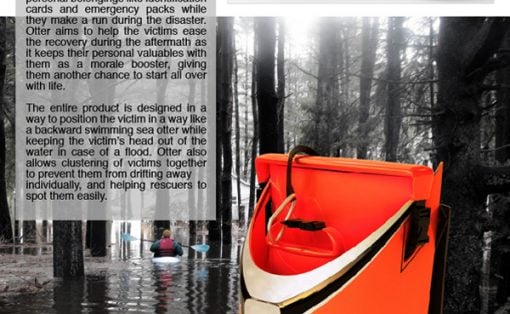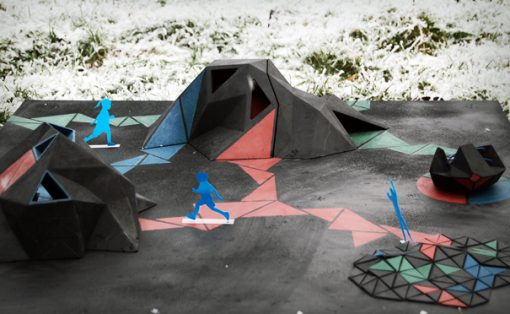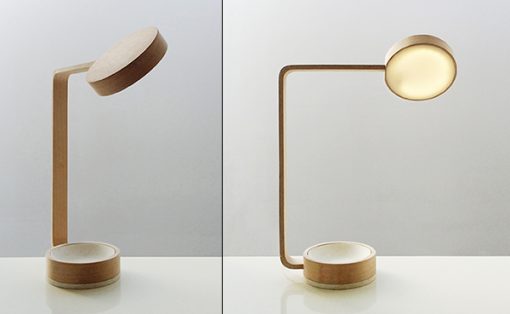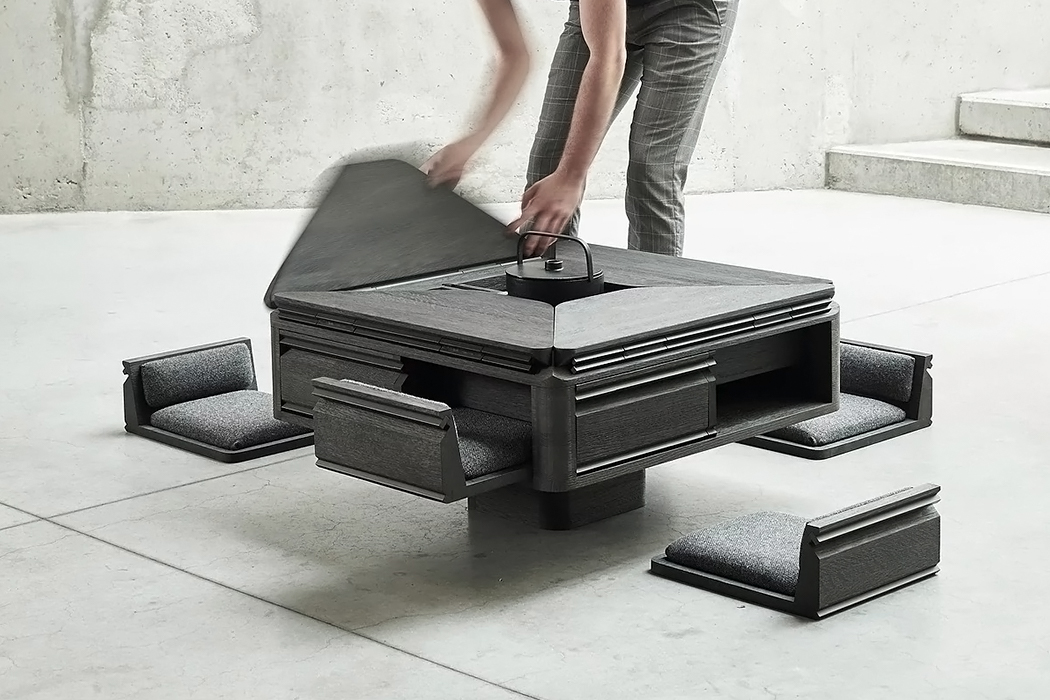
There’s something so soothing and therapeutic about the Japanese art of Origami. Some may say it’s simply folding paper, but it is much more than that. Though I may not be very good at it, almost everything made using this technique is always super pretty and you feel like secretly storing it away from clumsy hands. Origami has been a major source of inspiration for designers. They’ve been integrating this technique into many of their designs, and the result is minimal, artistic, and beautiful products that instantly make you feel at ease. We’ve curated a collection of origami-inspired designs – from a minimal tea table that was inspired by it to a shoe grip inspired by Kirigami (a variation of Origami). Each of these designs will invoke a sense of peace and serenity within you, and you would love to add them to your daily life and living space!
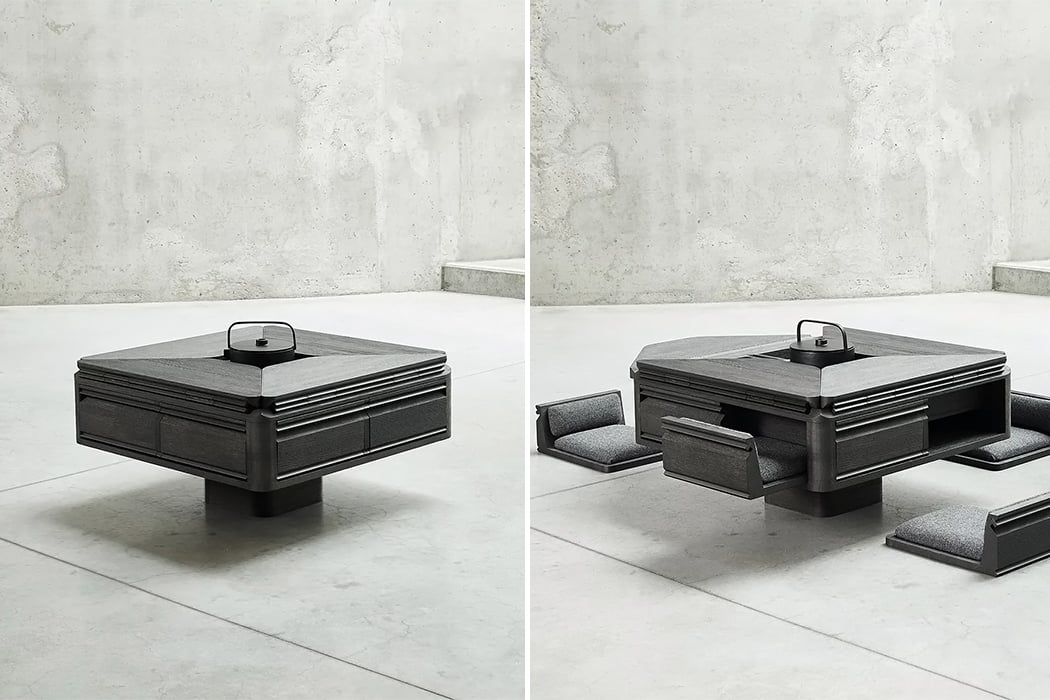
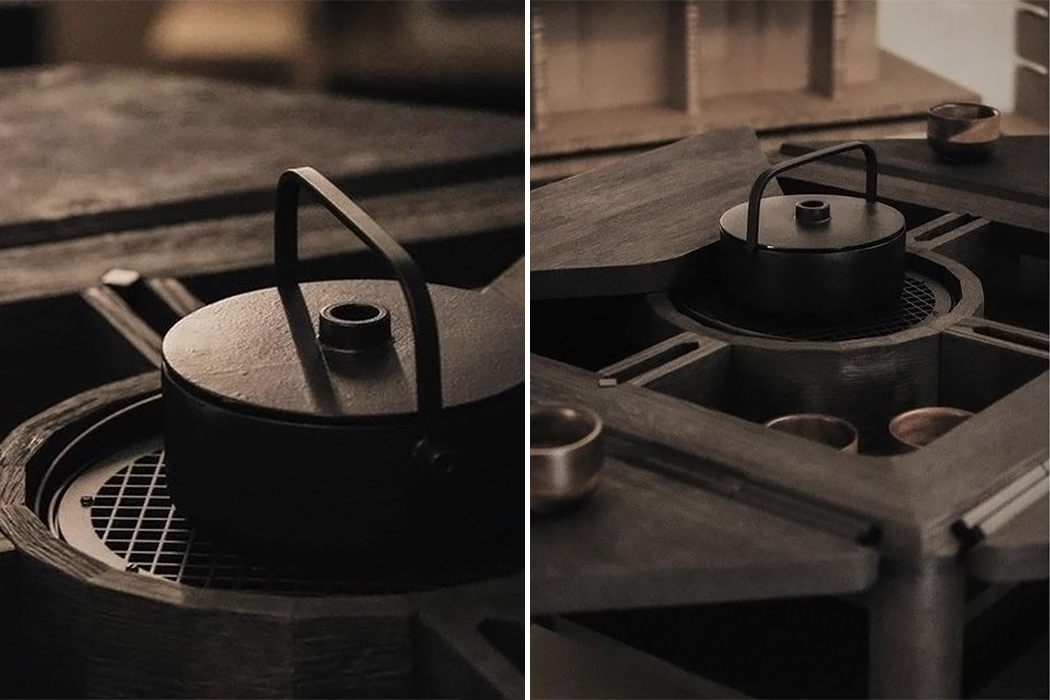
Hasu transforms itself as the tea ritual progresses making it a contemporary piece of furniture that still pays a tribute to the process. It starts as a minimal compact structure and ends as a complete furniture set for tea time. Hasu’s design allows storing an extensive tea collection while presenting it in a unique and clean manner – it is almost like you can fold or unfold the tea time ritual like origami. There is a lot of storage for all the objects needed for tea rituals and the table allows you to present them one by one during tea time, it is all on-site so everything is handy as well as neatly tucked away. The unfolding of the four upper tabletops marks the beginning of the tea time ritual. Extend the seating to four guests by simply pulling the floor chairs from the table. Even when it is not in use, it still upgrades the space as an abstract piece.
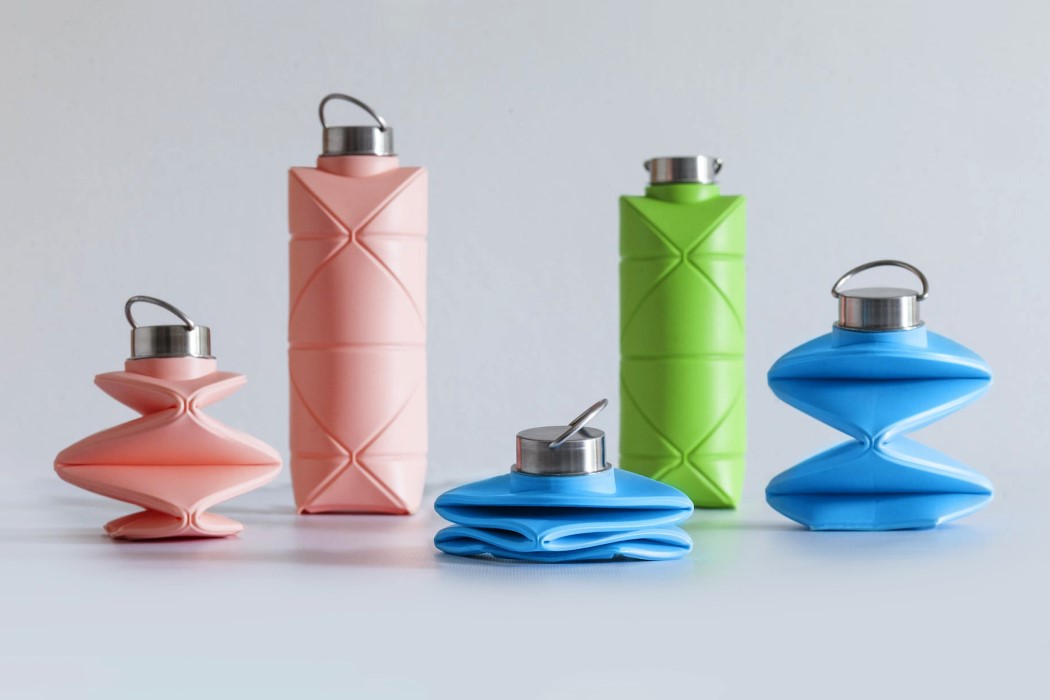

The Origami Bottle may have a solution to that convenient problem. Designed to be reusable, but more importantly, be collapsible, the Origami Bottle folds down to 20% of its original size when not in use. Small enough to easily fit into any bag without occupying much space, the Origami Bottle neatly folds down to a nice, portable puck that’s easy and convenient to carry around. When you need to fill it up, the bottle opens up to a full size of 25oz (750ml). Made from a food-safe non-toxic TPE, the Origami bottle is characterized by its network of creases that cover the bottle’s sides. These creases act as fold lines, allowing the bottle to collapse and expand whenever you want it, but here’s where the Origami bottle’s design shines through.
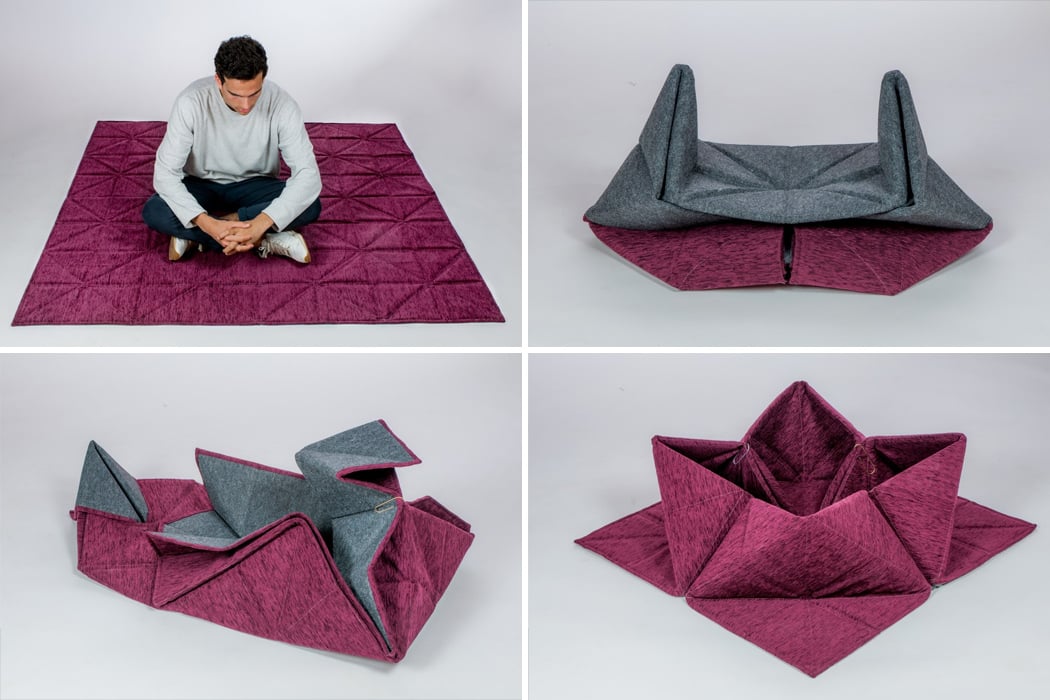
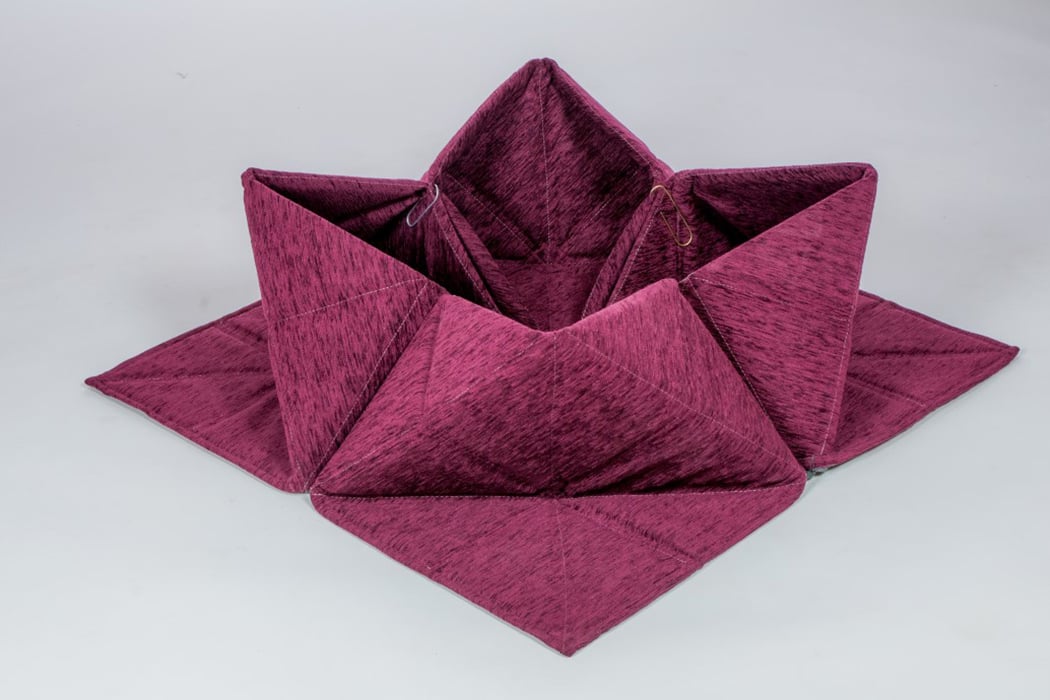
With the Imagiro, the carpet isn’t just a carpet anymore, but instead is an imagination-fueled origami art-installation that decorates your home (or even a hotel/retail space) in all three dimensions, displayed as a part of the Wayon showcase by EINA University of Design, Barcelona.
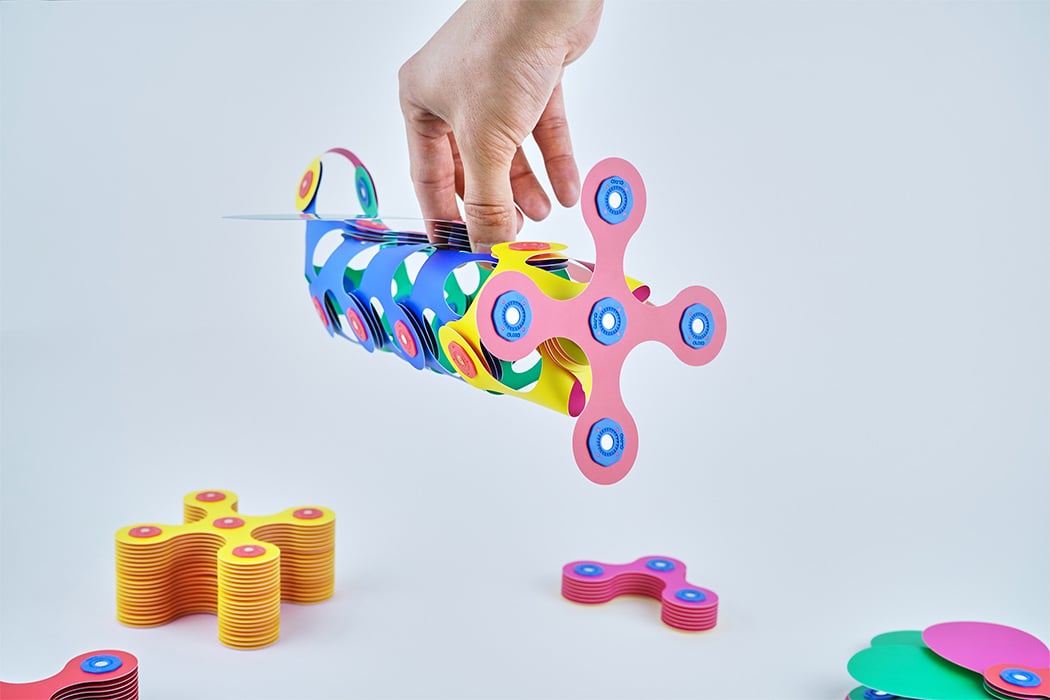
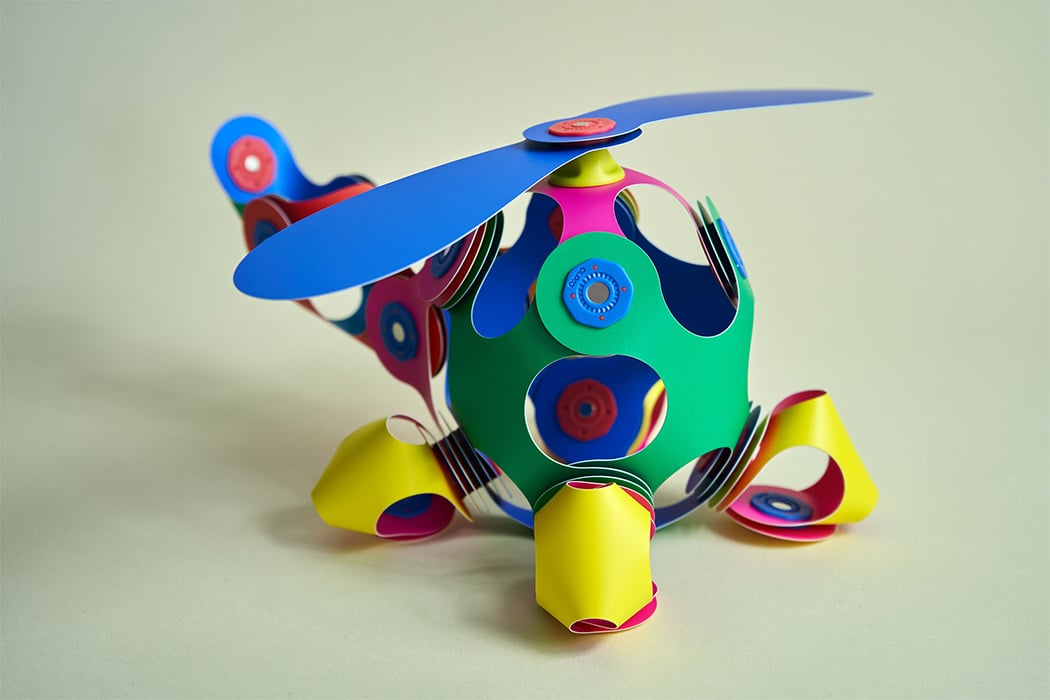
The Clixo magnetic building set presents the most dramatic change to this classic idea, by disregarding the need for block-shaped pieces entirely. Instead of sticking to the tried-and-true design of geometric shapes, the Clixo pieces are thin and flexible, almost like a sheet of origami paper. Some of the pieces mimic the shape of a fidget spinner, with four leg-like structures with circular, magnetic connectors. What are the advantages of this design? Firstly, it allows a Clixo to do what a lego can’t: fold inward and attach to its own legs. Secondly, it allows you to build anywhere (literally). Conventional building blocks must be stacked on a flat surface, otherwise, they’ll topple over. Clixo pieces aren’t limited by that constraint. You can build a new creation on your lap, wrap them around your wrist like a bracelet, or even stick them on your fridge like magnets.
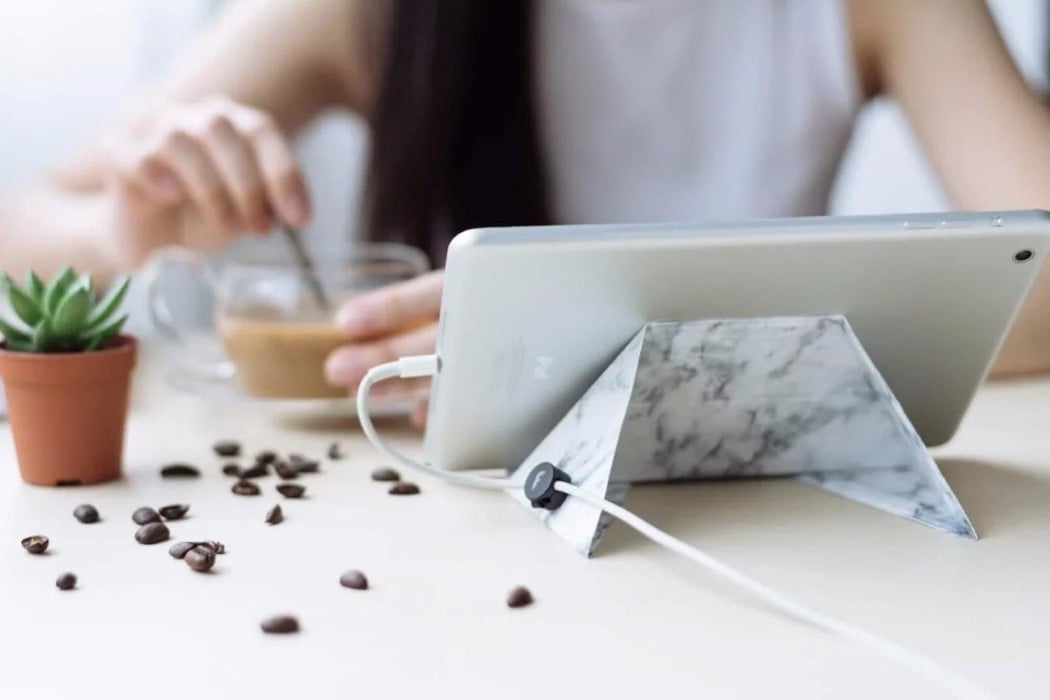
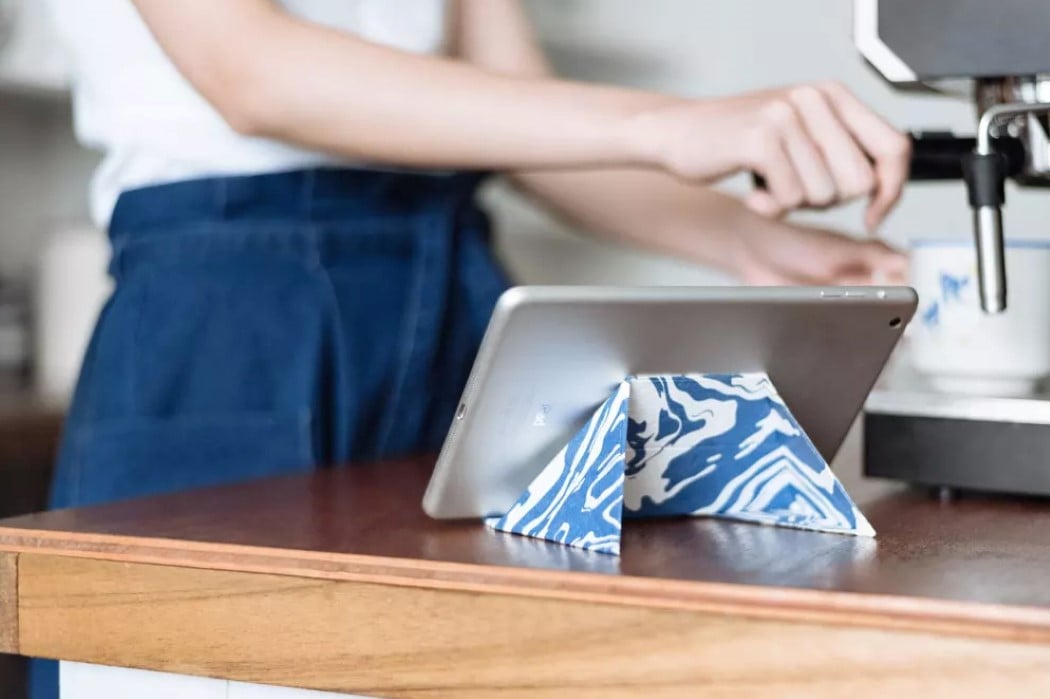
The FODI is a nifty little stand for your tablet and smartphone. When flat, it measures a cool 1mm thick and uses the powers of Origami to fold open into a convenient stand that lets you dock your smartphone or tablet onto it at a convenient angle for watching videos, movies, or just regular video-chatting. The FODI is made from polymers that provide strength over periodic use (the PP gives it its flexible ability). Designed with alluring patterns like marble, granite, wood, or even graphical designs, the FODI goes rather well with the tech that docks on it as well as the decor around you. Its incredibly slim profile even means you can carry it around with you in your tablet-sleeve or backpack. If only it could wirelessly charge your devices too, that would just be perfect!
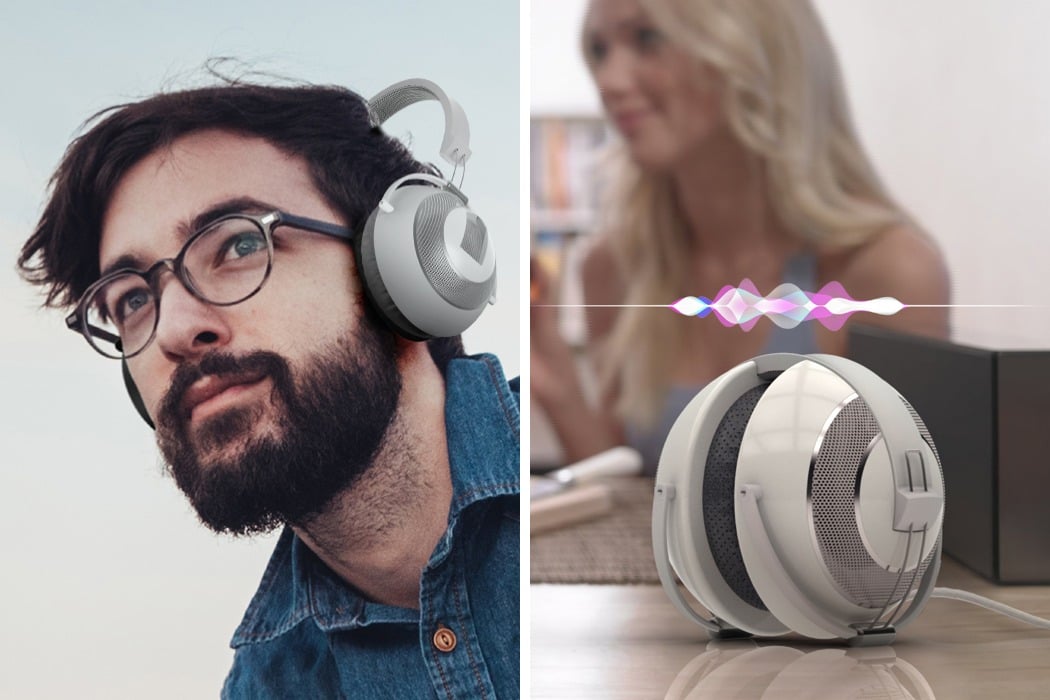
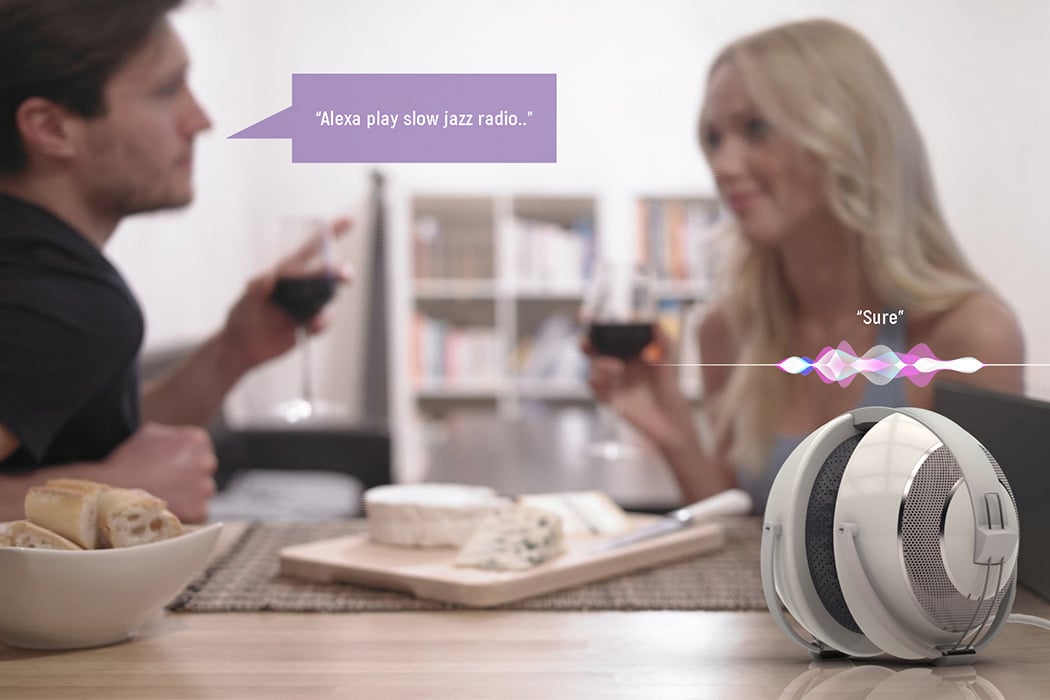
Inspired by the techniques used for origami, this compact and portable headphone is designed to fit into just about any space. Being a practical device, it is waterproof, dust-proof, and durable. Designer Vedang Kulkarni has kept in mind the key aspects of functionality and transformation. Needless to say, all controls are intuitively placed, so that you can access and adjust them easily. Audiball is your personal headphone and a smart speaker on the go. The telescopic headband is stylish and looks very chic as an accent in the speaker mode. Features include active noise-canceling technology for a better listening experience.
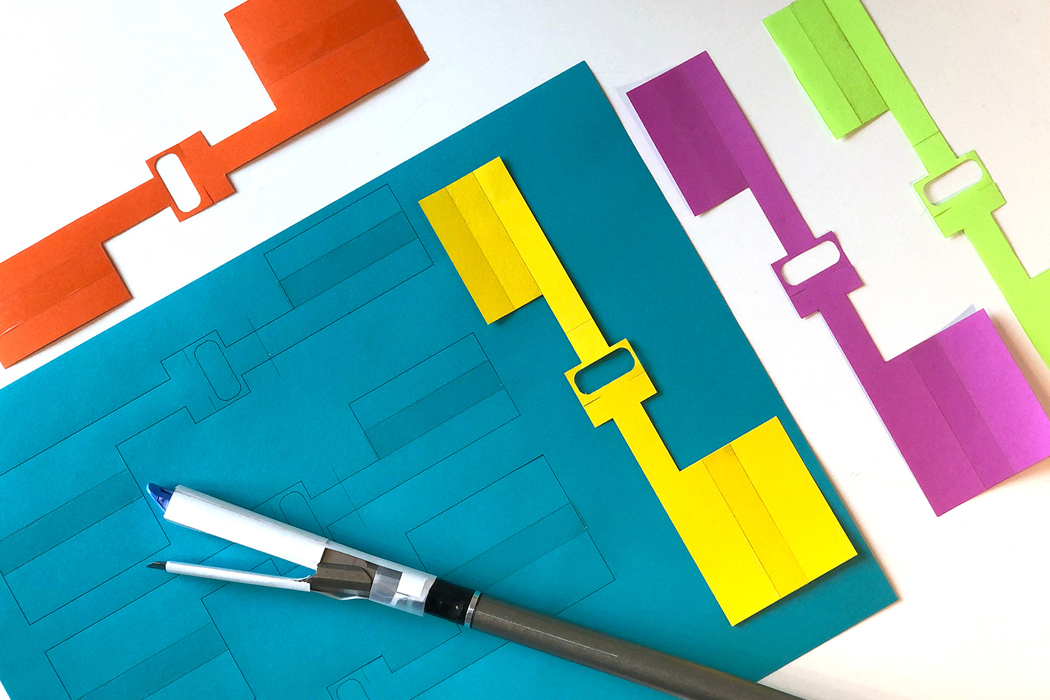
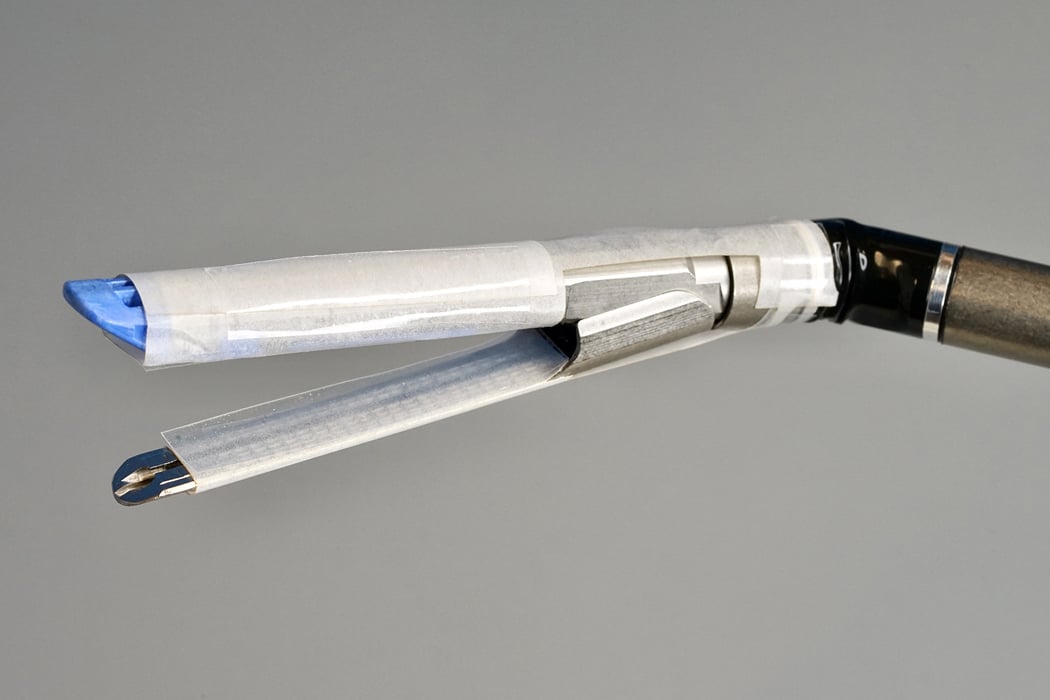
A century ago, not a soul would have imagined the advances in medical science we have achieved. Taking the evolution of medical surgeries a step further, MIT engineers have crafted an origami-inspired medical patch that can wrap around your internal organs with the utmost ease. This design makes it pretty useful in application to internal injuries or sensitive parts of the internal organs – airways, intestines, or hard-to-reach spaces. Aesthetically speaking, the design appears just like a foldable piece of paper; this patch contacts the tissues and organs. After that, it morphs into a thick gel that stays firmly on the injured area until it heals. The patch is made up of three layers – the top layer is an elastomer film consisting of zwitterionic polymers that become a water-based skin-like barrier. The middle layer is the bio-adhesive hydrogel having the compound NHS esters to form a strong bond with the tissue surface. The bottom layer is made up of silicone oil to prevent it from sticking to the body surface before reaching the intended target.
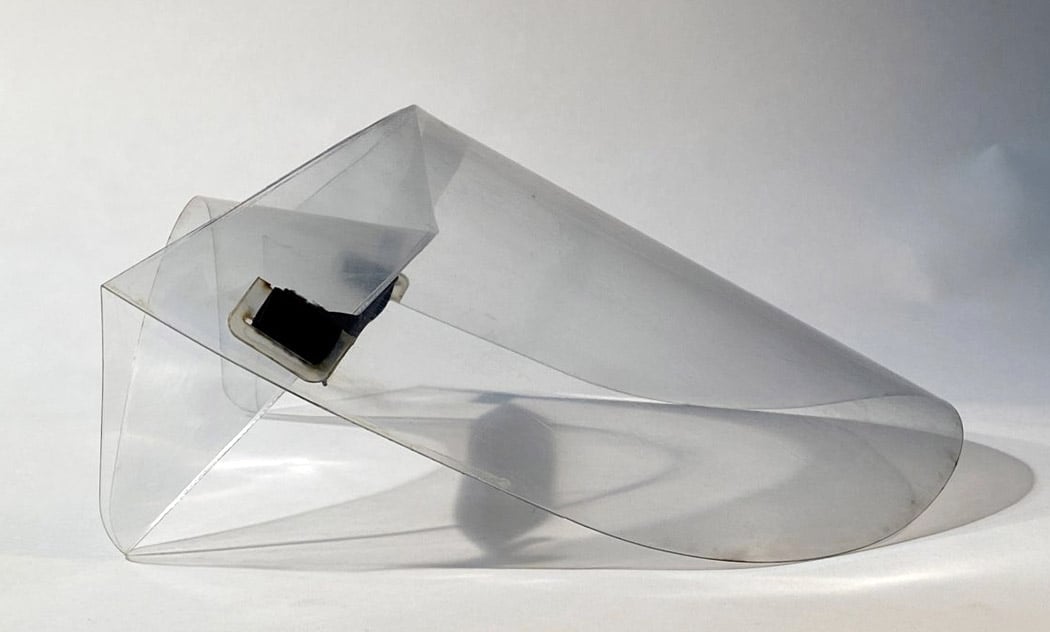
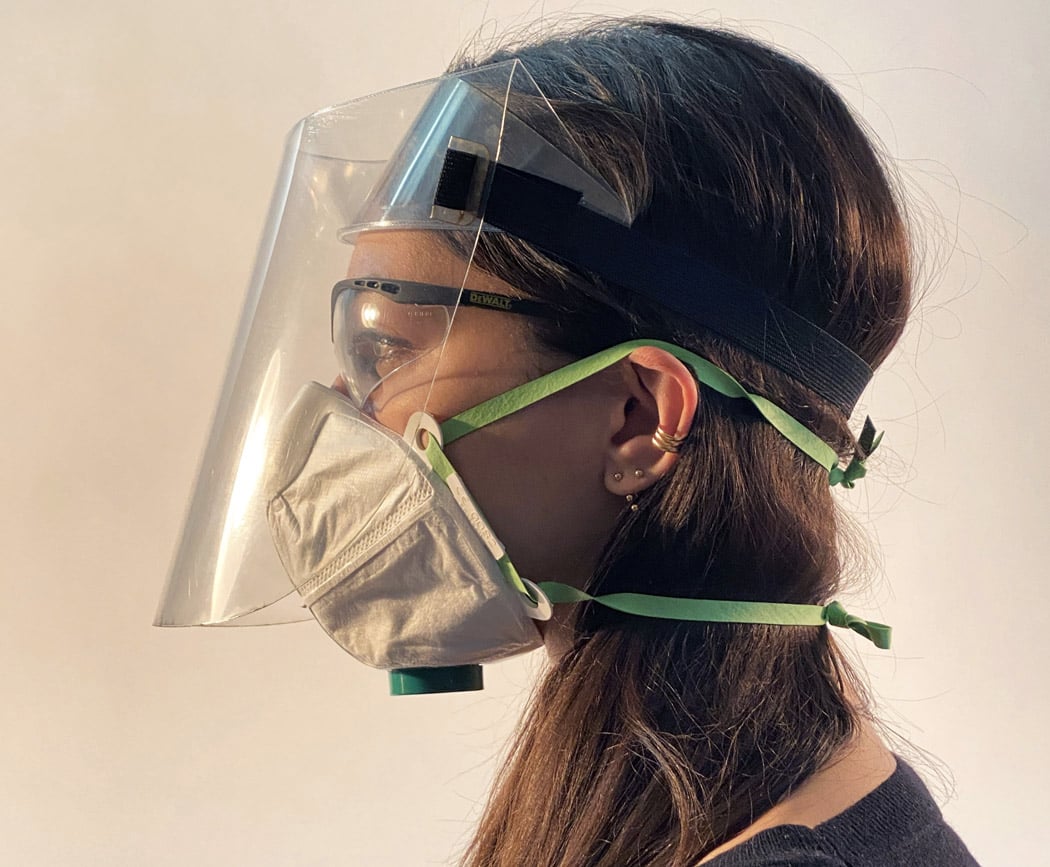
The University of Cambridge and The University of Queensland teamed up to create ‘The HappyShield’. The HappyShield is an origami face shield, that is created by simply folding a piece of clear plastic. The shield basically comprises a clear sheet and some elastic. Employing the curve-crease origami technique, the translucent plastic is folded on a template, and merged with a piece of elastic to create The HappyShield! The shield is very easy to make, and not does require 3D printing or any other complicated techniques. It can simply be made by hand and manufactured in bulk!
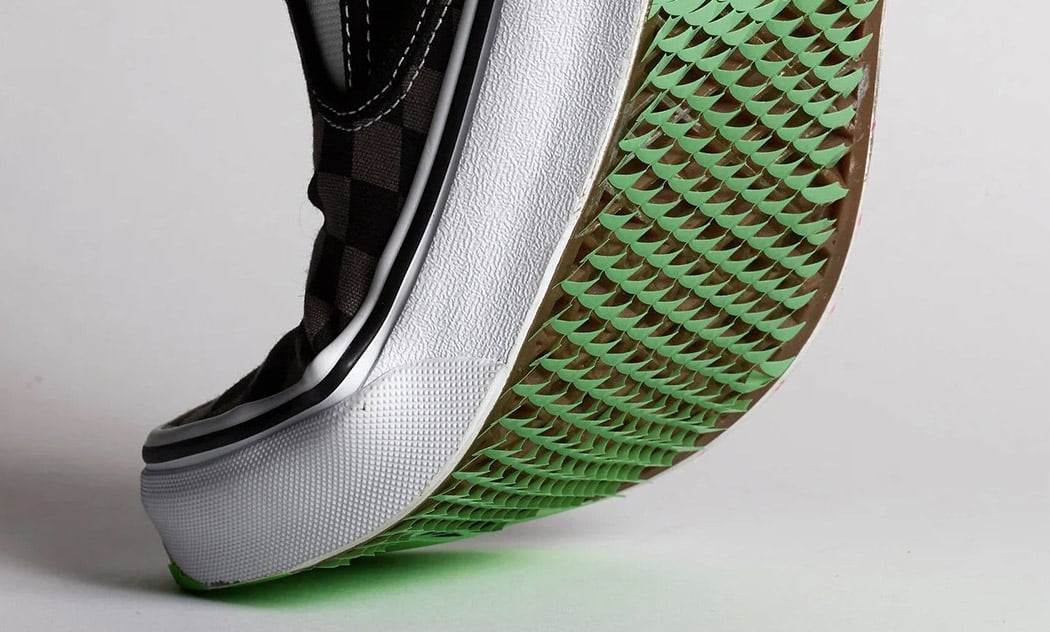
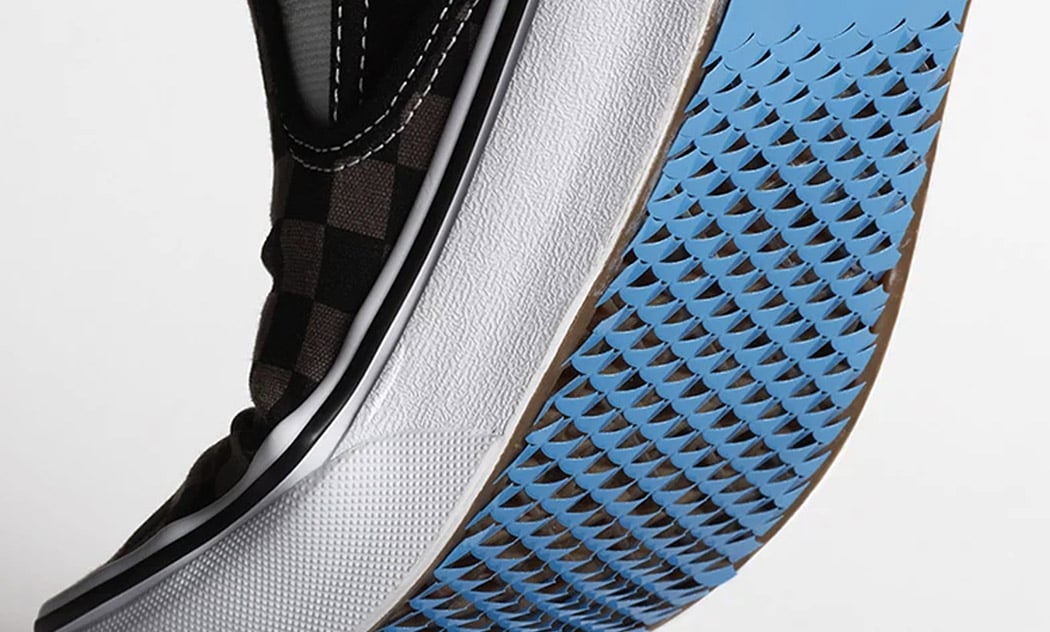
MIT engineers introduced a shoe grip, that was inspired by Kirigami – a variation of origami! It’s quite similar to snakeskin and is a sturdy friction-boosting material that will provide you with a stronger grip, especially when walking across a slippery surface. The super grip was designed bearing in mind older adults, as they are more prone to slipping, and it could reduce the risk of falling even! The Kirigami technique used here has been gaining a lot of popularity recently. It was even used to create a bandage that can artfully stick onto the tricky and deformable areas of your body. Origami has a lot more uses than we know, it seems!
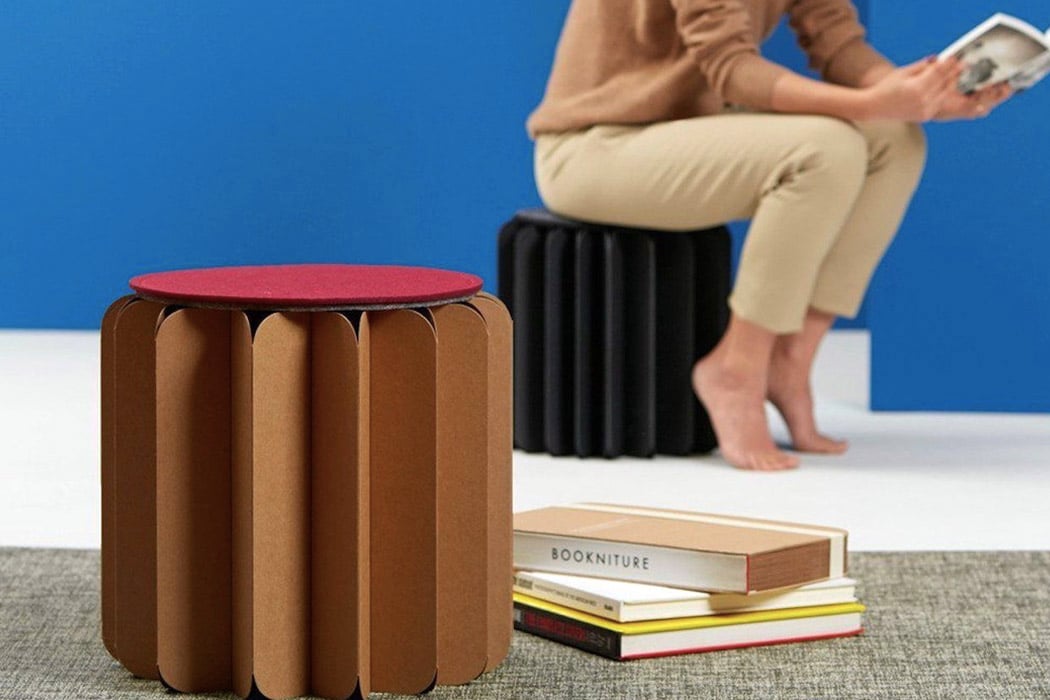
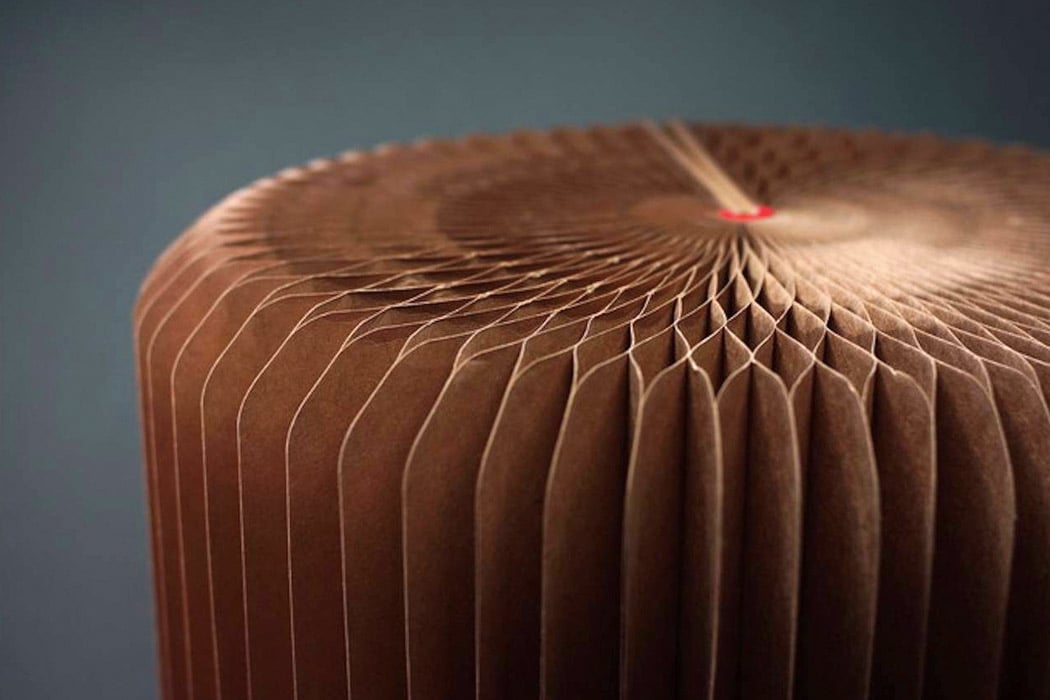
The Bookniture Origami Furniture by MoMA is really as creative as a product can get! It’s a piece of furniture that folds into a book when not in use! When folded, Bookniture is basically a book, one that you can easily slide onto your bookshelf or your desk. When opened, it forms an accordion-style furniture design that can be used as a table, seat, or even a storage shelf. Despite the fact that it can be folded in origami-style, the design is quite durable and able to hold quite a bit of weight. So you can sit on it with ease, without fearing that it’ll break apart and you may fall!



